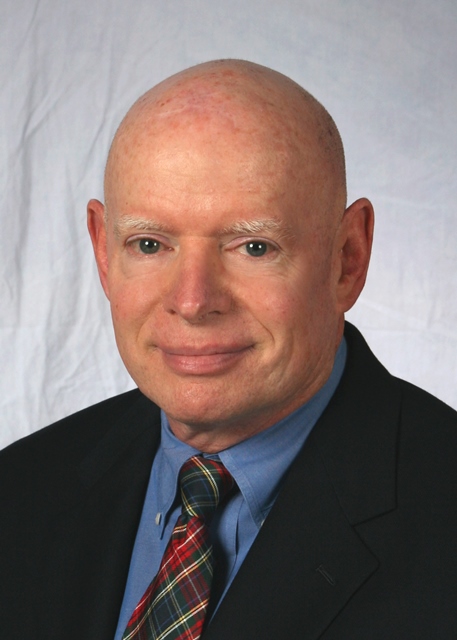By Jeff Brumley
A new survey shows that most Americans, including large numbers of Christians, hold compassionate views about people who kill themselves.
But some Baptist ministers remember times, not all that distant, when that wasn’t the case.
Barry Howard, senior minister at First Baptist Church in Pensacola, Fla., is one of them. He remembers preaching funerals for suicide victims as recently as the early 1990s and being asked if the deceased was doomed to hell.
But Howard said he’s noticed a different trend emerging since those days: “I don’t get asked that question anymore.”
Data newly published by LifeWay Research may explain why Howard and other ministers are hearing less anxiety around the theology of suicide.

The poll found that most Americans believe their country is experiencing a suicide epidemic. And LifeWay researchers found that most do not believe suicide to be a selfish act and they don’t believe it’s an automatic ticket to hell.
For evangelicals with years of ministry experience, the LifeWay research has evoked childhood and young adult memories of how pastors and congregations dealt with suicide. It has also given them and others a glimpse of how far some Americans have come on what used to be a dark and ugly secret in homes and congregations.
A revealing survey
“Americans are responding with compassion to a tragedy that touches many families,” Scott McConnell, LifeWay Research vice president, said in a LifeWay article about the survey. “For example, as researchers learn more about the effects of mental illness, people may be more likely to react to suicide with mercy.”
The phone survey of 1,000 Americans found that 56 percent believe suicide has become an epidemic in the United States. More than a third of those surveyed said they had a friend or relative die by suicide.
It also found that a slight majority — 55 percent — say suicide is not a selfish act. Another 36 percent believe it is selfish and 9 percent said they are not sure.

One of the greatest disparities came on a theological question about suicide: 62 percent disagree with the belief that people who kill themselves go to hell as a result. That’s compared to 23 percent who do believe that and 16 percent who are unsure, LifeWay found.
On this question, researchers discovered significant differences based on race.
African Americans are more likely to see suicide as selfish (44 percent) and to lead to hell (38 percent), the survey found. Only 19 percent of whites and 25 percent of Hispanics hold that view.
In general, 27 percent of Christians believe hell is the punishment for suicide. The number is 32 percent among evangelicals, the survey found.
‘Seeking a way out of suffering’
If attitudes toward suicide are becoming more compassionate it may have gotten a push from the military, which has experienced a surge of suicides since the wars in Iraq and Afghanistan.
“I think because there are a fair number of suicides in the military, most of us know someone who took their lives and that makes it … not quite as hush-hush as it was,” said Gerald Hutchinson, the chaplaincy and pastoral care services manager for the Cooperative Baptist Fellowship.

A retired Navy captain and chaplain, Hutchinson said he has ministered to many families of service members who killed themselves, as well as to young sailors and Marines who were contemplating that action.
“It’s not so much that they wanted to end their lives as they wanted a way out of the suffering they were experiencing,” he said.
Never did they ask him if they would go to hell as a result, Hutchinson said. It was the same for families and friends of those who had died.
“I can’t think of anyone who engaged me from a theological point of view,” he said.
No lack of grace
Nor was a condemnation of suicide victims common in some Southern Baptist communities and families decades ago, said Marion Aldridge, a writer, retired pastor and former coordinator of CBF South Carolina.
People who took their own lives in and around North Augusta, S.C., were not considered to be selfish people damned to hell — at least not when Aldridge was a little boy there.
“Suicides happened, but there wasn’t any lack of grace that I ever remember as a child,” he said.

At 12, he attended the funeral of someone who died by suicide and “the preacher didn’t preach them into hell or into heaven,” he said.
But as evangelicals, there was an emphasis on using the occasion to evangelize the survivors.
“The emphasis was on those left behind and getting them to join the church,” Aldridge said.
Aldridge, who still preaches and conducts funerals, said he takes the same approach today.
“It’s not my job to preach anybody into heaven or stand in God’s place and say this person doesn’t qualify because they … committed suicide,” he said.
Tradition, not scripture
The whole question of suicide and damnation is puzzling, anyway, Howard said.
Howard said he remembers combining the two as a child and even as a young minister. But ultimately he was unable to square it with scripture.
“I can’t find it in the Bible as the unforgivable sin,” he said.
What’s happened is that much of the church and the culture have been given a theology about suicide that is more tradition masquerading as scripture, Howard said.
“Traditions become authority and seem scriptural,” he said.
